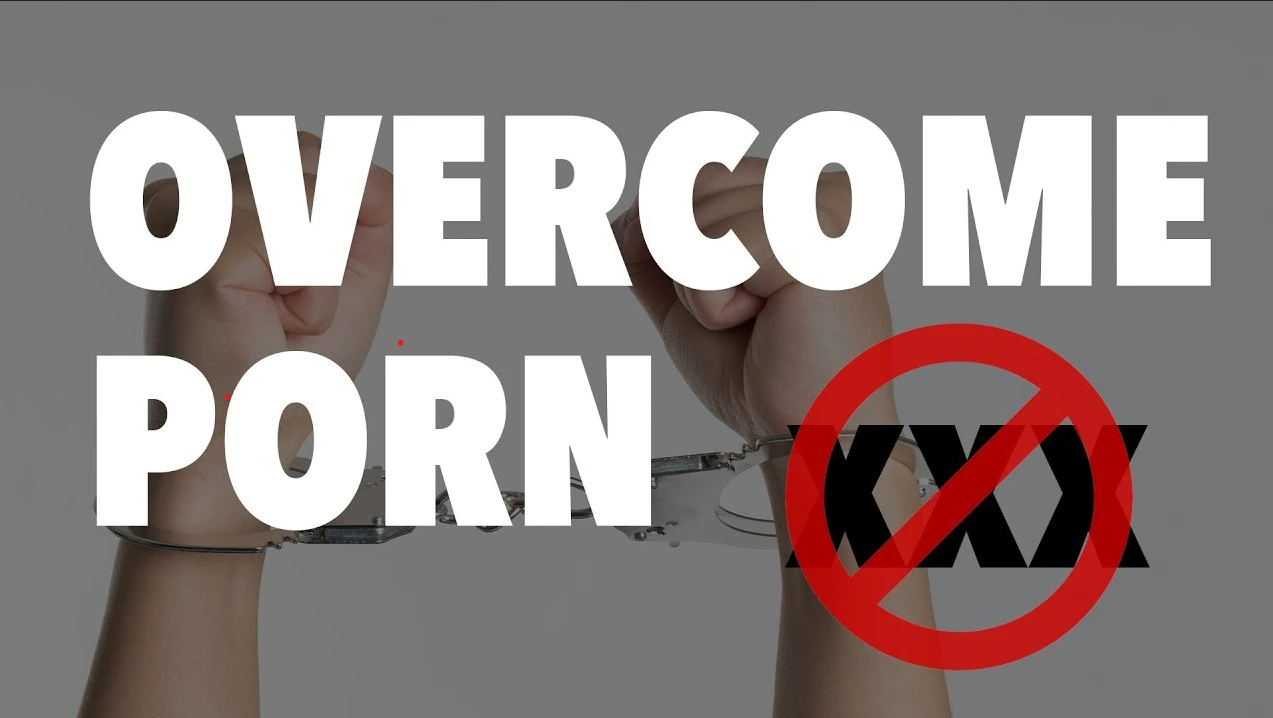Embarking on the journey to conquer pornography addiction demands a roadmap rooted in understanding and empowerment. At mindsetpot.com, we recognize the gravity of this issue and are dedicated to offering a nuanced guide that transcends the generic. This comprehensive manual aims not only to inform but to engage, providing actionable steps for a transformative recovery.
Things You Should Know about Pornography Addiction
- Complex Dynamics: Pornography addiction involves intricate interplays of psychological, social, and biological factors.
- Mental Health Impact: Excessive consumption is linked to heightened anxiety and depression, emphasizing the need for timely intervention.
- Signs of Addiction: Recognizing indicators like guilt, obsessive thoughts, loss of control, and neglect of responsibilities is crucial for early intervention.
- Independent Recovery: Personal strategies such as deleting explicit content, planning activities, and identifying triggers empower individuals to overcome addiction autonomously.
1. Overcoming Your Addiction on Your Own
Embarking on the path to overcoming Pornography addiction independently requires a blend of self-awareness, discipline, and strategic planning. Here’s a comprehensive guide to navigating this personal journey.

(i) Delete Pornography from Your Devices
The first step in reclaiming control is cleansing your digital space. Delete any explicit content from your devices, eliminating the immediate temptation that may derail your progress.
(ii) Use Parental Lock on Your Phone and Computer
Empower yourself with technological barriers. Implement parental locks on your phone and computer, adding an extra layer of defense against inadvertent exposure to explicit content.
(iii) Plan an Activity for Your Free Time
Idle time can be a breeding ground for temptation. Develop a schedule that fills your free hours with purposeful activities, leaving little room for boredom or the allure of pornography addiction.
(iv) Spend More Time with Family and Friends
Human connection is a powerful antidote to addiction. Strengthen your support system by spending quality time with family and friends, fostering bonds that serve as pillars of strength.
(v) Identify Your Triggers and Avoid Them
Understanding the catalysts for your addiction is pivotal. Identify triggers that lead to engaging in explicit content and actively work towards avoiding or mitigating them. For example, Whenever I sleep late, my mind thinks about masturbating and watching porn. I watch porn for so long that it makes me go to sleep late resulting wake up late. I recognized this situation and started working on it. Now I never sleep late and keep my phone away from the bed. You can also identify your triggers like me and solve them on your own.
(vi) Lower Your Stress Level
Stress often acts as a catalyst for seeking solace in addiction. Embrace stress-relieving practices such as meditation, exercise, or hobbies, creating a healthier coping mechanism.
(vii) Treat Any Underlying Mental Health Issues
Pornography addiction can sometimes be a symptom rather than the root cause. Seek professional help to address underlying mental health issues, ensuring a holistic approach to recovery.
Empowering Yourself for Lasting Freedom
Embarking on the journey to overcome pornography addiction demands a blend of strategy, self-discipline, and a commitment to personal growth. Implementing these proactive steps not only fortifies your defenses against temptation but also lays the foundation for lasting freedom. Remember, your journey is unique, but with dedication and the right tools, liberation from addiction is within reach.
2. Professional Help
Acknowledging the need for professional guidance is a commendable step towards liberation from pornography addiction. Here’s a strategic approach to seeking and benefiting from professional assistance.

(i) Reach Out to a Therapist
Therapeutic intervention can be a beacon of light on the path to recovery. A qualified therapist skilled in addiction can provide personalized strategies, coping mechanisms, and a safe space to explore the roots of your pornography addiction.
(ii) Join a Support Group
Shared experiences form a powerful support network. Joining a support group for individuals grappling with pornography addiction offers a community where understanding is abundant, and mutual encouragement becomes a catalyst for positive change.
(iii) Try Medication as per Professional Recommendation
In some cases, medication can be a valuable adjunct to therapy. Consulting with a healthcare professional can lead to a tailored approach, where medication is prescribed based on your specific needs and the severity of your pornography addiction.
Embracing Professional Support for Lasting Recovery
Recognizing the significance of seeking professional help in overcoming pornography addiction is a transformative step. Each avenue—therapeutic intervention, support groups, and medication—is a valuable tool in the arsenal against addiction. Remember, recovery is a journey, and with the right professional support, a life free from the shackles of pornography addiction awaits.
3. Signs of a Pornography Addiction
Identifying the signs of pornography addiction is the crucial first step toward a path of self-awareness and recovery. Below are key indicators that may signal an unhealthy relationship with explicit content.
(i) Feeling Enormous Guilt or Shame After Watching Porn
Overwhelming guilt or shame following the consumption of porn can be a telling sign of addiction. If these emotions become recurrent and intrusive, it may be an indication that your relationship with explicit content has crossed into unhealthy territory.
(ii) Spending a Lot of Time Thinking About Porn and Sexual Activities
Excessive preoccupation with thoughts of porn and sexual activities can signify an unhealthy fixation. If these thoughts dominate your mental landscape, it’s essential to reflect on whether they are impacting your daily life and overall well-being.
(iii) Use of Porn Feels Out of Control
A loss of control over the consumption of porn is a classic hallmark of addiction. If you find yourself unable to moderate or stop the use of explicit content despite your intentions, it’s time to consider the possibility of a pornography addiction.
(iv) Ignoring Relationships or Responsibilities for Porn
Prioritizing porn over relationships and responsibilities is a red flag. If you find yourself neglecting important aspects of your life—be it personal relationships or professional duties—due to the pursuit of explicit content, it’s indicative of a deeper issue.
(v) Porn is Impacting Your Life Negatively
The most telling sign of pornography addiction is its adverse impact on your life. If your mental health, relationships, work, or overall well-being are suffering due to the consumption of explicit content, it’s time to address the issue head-on.
Seeking Clarity for a Liberated Tomorrow
Recognizing these signs is the first step toward regaining control and fostering a healthier relationship with sexuality. If you resonate with any of the indicators mentioned, consider seeking support from professionals or engaging in strategies for overcoming porn addiction. Remember, acknowledging the issue is a brave step toward a brighter, liberated tomorrow.\
Wrap Up Time
Reclaiming control from the clutches of pornography addiction is an odyssey of self-discovery and resilience. At mindsetpot.com, this guide is more than information; it’s an empowering narrative for those seeking liberation. Remember, your journey is unique, but with the right tools and unwavering support, a life emancipated from addiction awaits.
Frequently Asked Questions (FAQs) for How to Overcome Pornography Addiction
Q: What is pornography addiction, and how is it defined?
A: Pornography addiction is characterized by an individual’s compulsive and problematic consumption of explicit content, leading to negative consequences in various aspects of life. It involves a loss of control and often results in feelings of guilt and shame.
Q: Can I overcome pornography addiction on my own?
A: Yes, it’s possible to overcome pornography addiction independently. Our guide provides detailed strategies, from deleting explicit content to planning activities and lowering stress levels, empowering you on your journey to recovery.
Q: When should I consider seeking professional help for pornography addiction?
A: If your attempts to overcome pornography addiction independently prove challenging or if the addiction is significantly impacting your life, seeking professional help is advisable. Therapists, support groups, and medication, as recommended by professionals, can be valuable resources.
Q: What are the signs of pornography addiction?
A: Signs include intense guilt or shame after watching porn, obsessive thoughts about sexual activities, a sense of loss of control, neglecting relationships or responsibilities for porn, and overall negative impacts on life. Recognizing these signs is crucial for initiating positive change.
Q: How can I support a friend or family member struggling with pornography addiction?
A: Supporting someone dealing with pornography addiction involves open communication, empathy, and encouragement. Suggesting professional help, participating in their recovery journey, and fostering a non-judgmental environment can make a significant difference.
Q6: Are there long-term strategies for sustaining recovery from pornography addiction?
A: Absolutely. Integrating mindfulness practices, engaging in ongoing support communities, and addressing underlying mental health issues contribute to sustained recovery. Our guide explores these long-term strategies for lasting freedom from pornography addiction.
Q: Is medication a common approach to treating pornography addiction?
A: In some cases, professionals may recommend medication as part of a comprehensive treatment plan for pornography addiction. It’s essential to consult with a healthcare professional to determine the suitability of medication based on individual circumstances.
Q8: How can I recognize if pornography is negatively impacting my life?
A: If pornography consumption leads to feelings of guilt, interferes with daily responsibilities, strains relationships, or affects mental health, it may be negatively impacting your life. Recognizing these signs is crucial for initiating positive change.
Q9: Is it possible to rebuild relationships after overcoming pornography addiction?
A: Yes, overcoming pornography addiction can contribute to rebuilding relationships. Open communication, couples counseling, and a commitment to positive change are key factors in restoring trust and fostering healthy connections.
Q: Where can I find additional resources on overcoming pornography addiction?
A: Explore our comprehensive guide for in-depth insights and strategies for overcoming pornography addiction. Additionally, consider seeking support from reputable online and local communities dedicated to addiction recovery.
Feel free to contact us at mindsetpot@gmail.com for any further inquiries or personalized guidance on your journey to overcoming pornography addiction.
